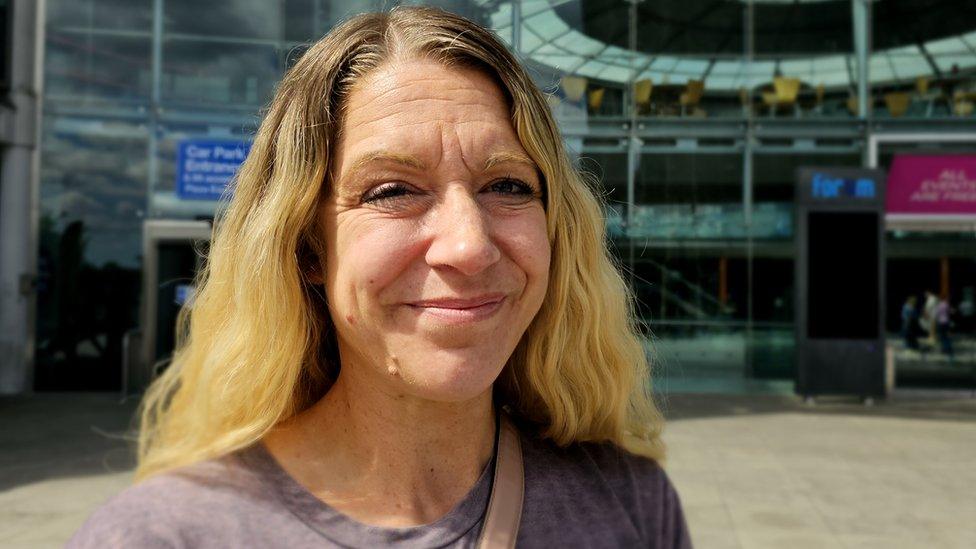Endometriosis: 'I thought I'd never get to have a Mother's Day'
- Published
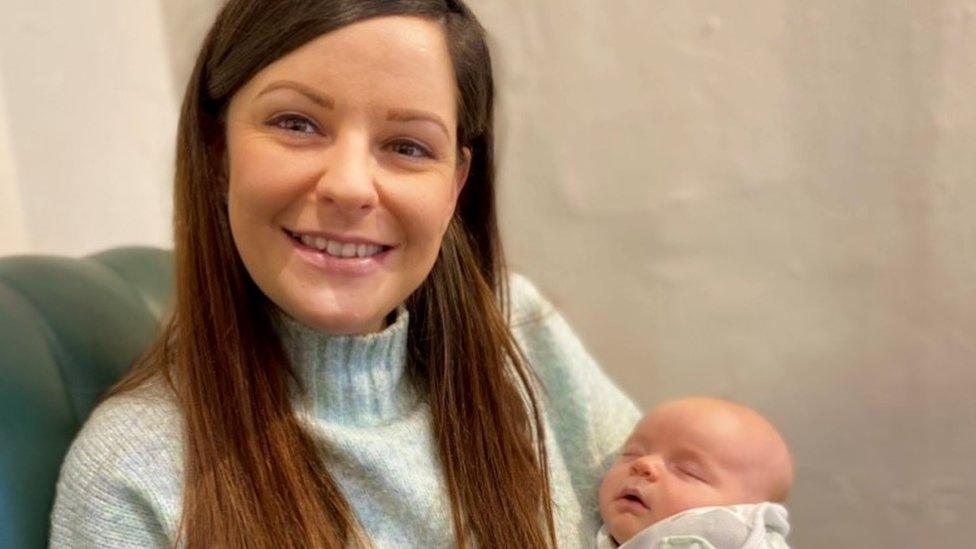
Natalie Guyan, who said she spent years trying to conceive due to undiagnosed endometriosis, had her son Arthur in December
A woman celebrating her first Mother's Day after years of struggling to conceive said she wanted to raise awareness of endometriosis.
Natalie Guyan's stomach used to bloat so badly that she looked heavily pregnant.
She said doctors failed to realise she had endometriosis, which was causing her fertility issues.
The 34-year-old was diagnosed after several years of "being fobbed off" and had her son Arthur in December.
"This is my first Mother's Day with him, I am so excited. It is something that I thought would never happen for me," said Mrs Guyan, who lives in Biggleswade, Bedfordshire.
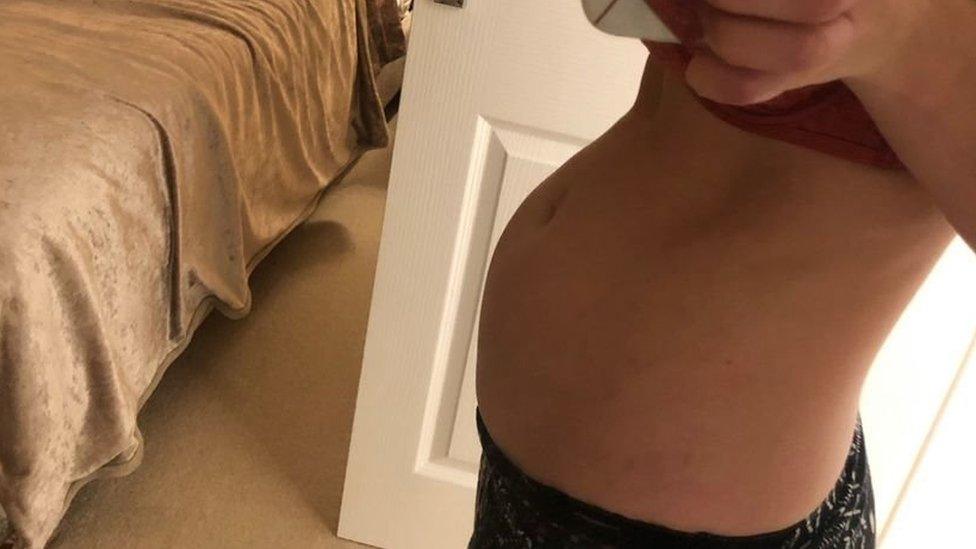
Mrs Guyan took this photo of her stomach bloated from endometriosis, which was undiagnosed at the time, in 2020
Mrs Guyan, who works as a spa manager, had always suffered from heavy and painful periods, which got so bad that she often could not leave the house.
"My stomach was so inflamed that I looked six months pregnant on some days, which was even more traumatic because I couldn't seem to fall pregnant. One of my neighbours congratulated me because she saw my bump, which was very upsetting," she said.
She and her husband Alex spent several years trying for a baby after they got married. The couple were referred for NHS-funded IVF treatment at Bourn Hall Clinic in Cambridge but Mrs Guyan experienced a rare reaction to the surge in hormones and the treatment had to be put on hold.
She suspected that she had endometriosis but was "not taken seriously", she said, by a succession of GPs, and decided to pay for a private consultation with a doctor who diagnosed her after an MRI scan.
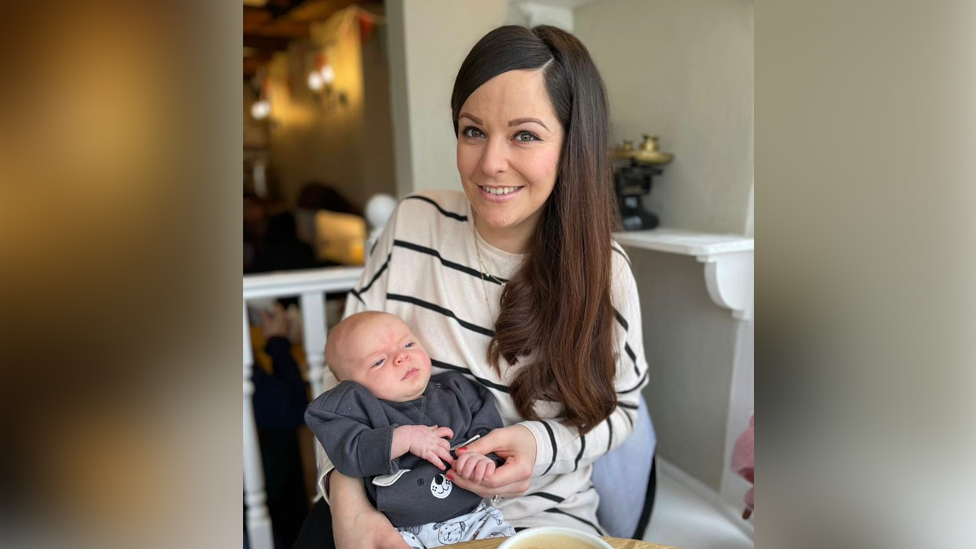
Natalie had to pay to go privately to get her endometriosis diagnosis
"I had endometrial tissue growing on my pelvis and uterus which had become tethered to one of my ovaries, so I had surgery to remove the tissue," she said.
"Thinking back, I wish I had been more insistent. If I had known earlier we would have started trying for a baby earlier, so I really want other women with similar symptoms to keep pushing their GP for answers."
According to the Royal College of Nursing, endometriosis affects one in 10 women and takes an average of eight years to diagnose.

What is endometriosis?
It is a condition where tissue similar to the lining of the womb grows in other places, such as the ovaries and fallopian tubes.
Symptoms include pelvic pain, which is usually worse during menstruation; period pain which affects day-to-day life; pain during or after sex; and sometimes fertility issues.
Women of any age can be affected by the long-term condition.
Treatments include painkillers, hormonal contraceptives and surgery to cut away the tissue.
Source: NHS, external

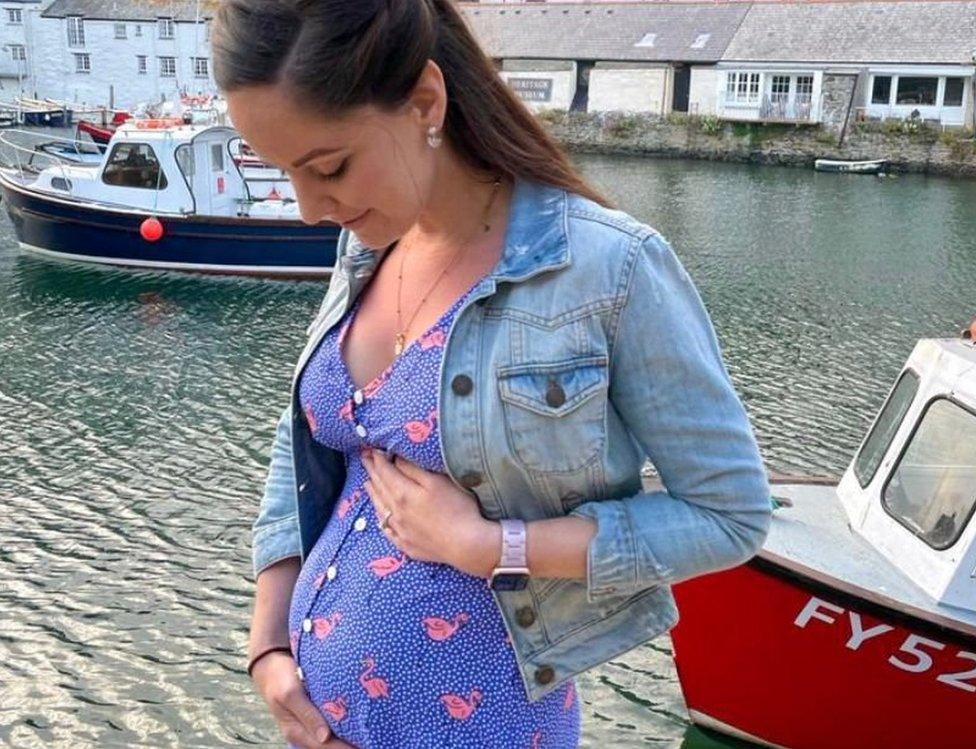
When Mrs Guyan did fall pregnant she took four tests, because she could not believe it
Mrs Guyan decided to have IUI treatment (intrauterine insemination), which involves placing the prepared sperm into the uterus shortly after ovulation.
"Unfortunately, the first time the IUI didn't work, and I really felt as though it just wasn't going to happen for us. We had been trying for a baby for years by this point and so we did make some exploratory calls looking in to adopting.
"But then a few months later I thought maybe we should give IUI another try. Our first IUI attempt was covered by the NHS, but for the second try, we funded it ourselves.
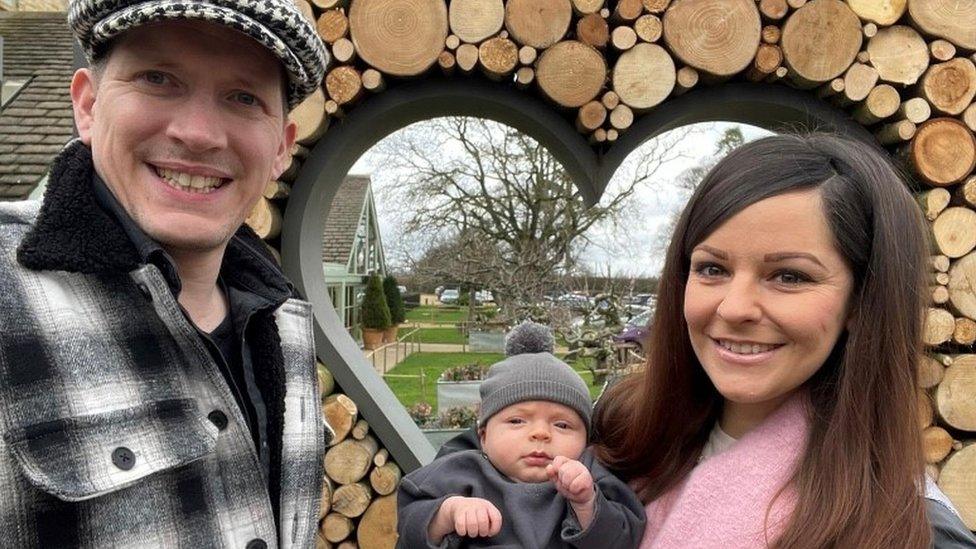
Baby Arthur has been described as a "total gift" by his parents
"I was convinced it hadn't worked so when I took the pregnancy test, and it was positive, I was just so shocked that I had to take another four just to check. I was so happy I cried and cried."
The couple's baby Arthur arrived in December, with his parents describing him as a "total gift".
"Just the way he smiles at me, I never thought I would feel this love, I never thought it would be possible for me to have my own child," she added.
Dr Shreeya Tewary, consultant gynaecologist at Bourn Hall Clinic, said: "Endometriosis can affect fertility due to scarring and adhesions in the pelvis, distorting anatomy or causing blocked fallopian tubes.
"So, if you have been struggling to conceive and recognise that you have symptoms which could be endometriosis it is advisable to seek medical advice sooner rather than later to avoid any unnecessary delays."

Follow East of England news on Facebook, external, Instagram, external and X, external. Got a story? Email eastofenglandnews@bbc.co.uk, external or WhatsApp 0800 169 1830
Related topics
- Published26 February 2024
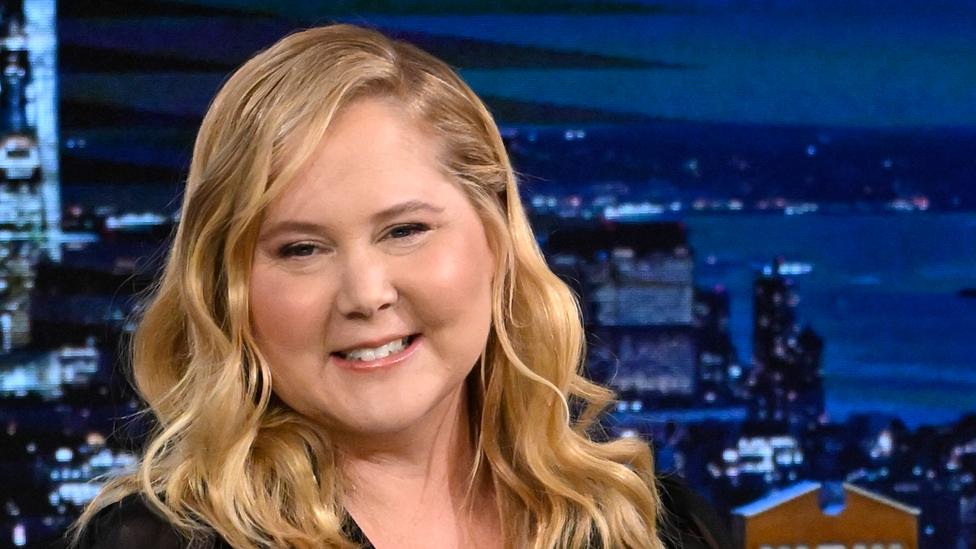
- Published22 February 2024
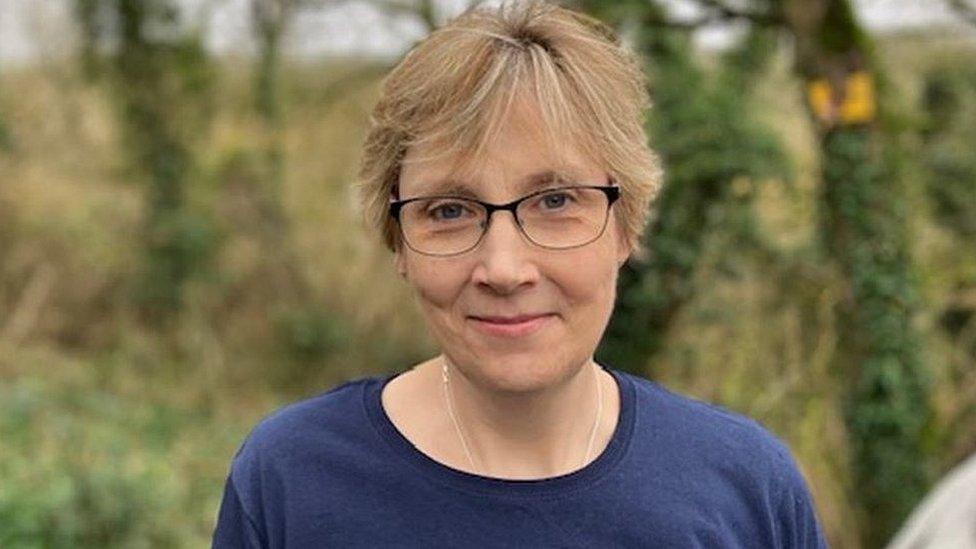
- Published6 December 2023
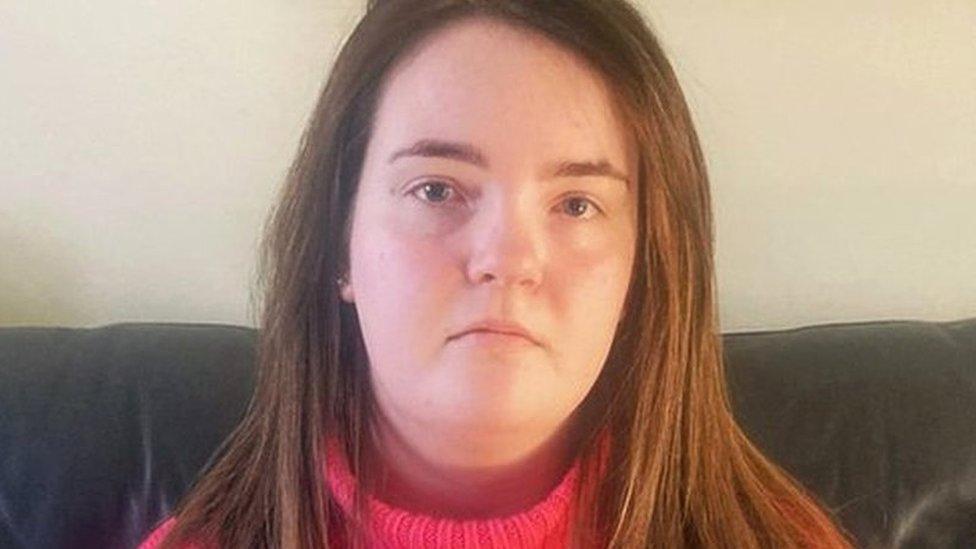
- Published10 August 2023
